Today, the Supreme Court of India, under the leadership of Chief Justice Ranjan Gogoi pronounced one of the most awaited judgements in the history of India.
Yes, we are talking about the same case whereby there was a dispute on the ownership of a piece of land in Ayodhya city of Uttar Pradesh.
As the contentions of the Hindu parties go, there was a temple on the land before the Babri Masjid was constructed. However, the Muslim parties contend that before the construction of the Babri Masjid, there was no temple on that land.
The judgment pronounced by the CJI today brought the dispute to an end. The 5 judges’ constitutional bench of the apex court unanimously created a win-win situation for both the parties.
The court affirmed Ram Lala Virjaman’s ownership over the disputed property and directed the Central and State government to allocate 5-acre land to Muslim parties to build a mosque.
Here are some important highlights of the verdict.
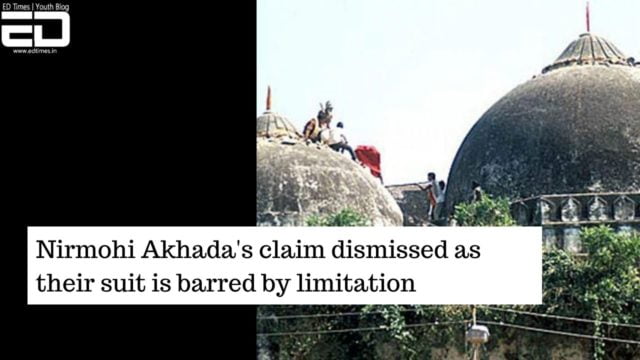
The limitation in law refers to the period within which a suit has to be instituted or an appeal has to be filed. If the case is filed beyond this time and the party fails to give reasons for the delay in institution of suit or filing of an appeal, the case is barred by limitation and the same is dismissed.
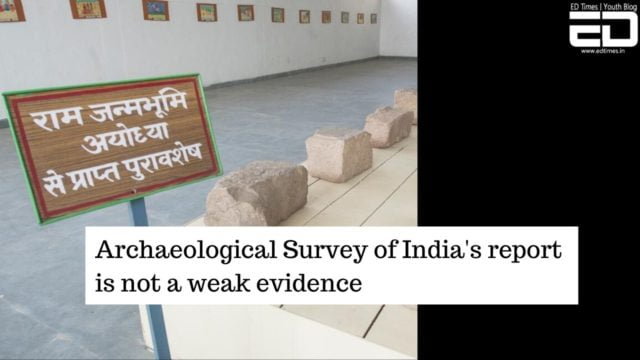
The reports of Archaeological Survey of India are expert reports and the court has considered them as evidence in the present matter.
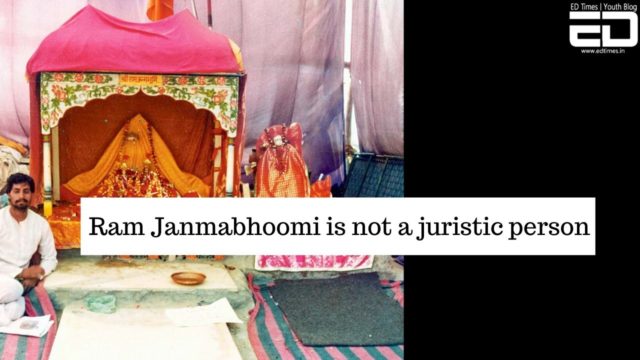
A juristic person refers to a person who can sue and be sued in its name. In the present matter, Ram Lala, who is represented by Ram Lala Virajman is a perpetually minor juristic person. However, the court said that Ram Janmabhoomi is not a legal or juristic person.
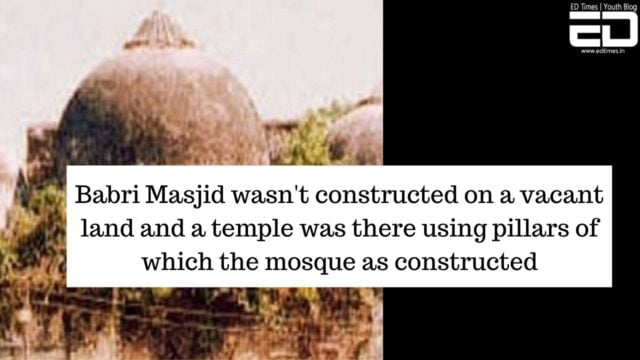
According to the claim of the Muslim parties, there wasn’t a temple on the land before the construction of the mosque. However, the court rejected this contention and agreed with the report of ASI which states that there was a temple on the land before there was a mosque.
The court said that the temple wasn’t demolished and the existing pillars of the temple were used to construct the mosque.
Read Also: ED VoxPop: Do First Time Voters Think That The Ram Mandir Issue Will Affect 2019 Elections?
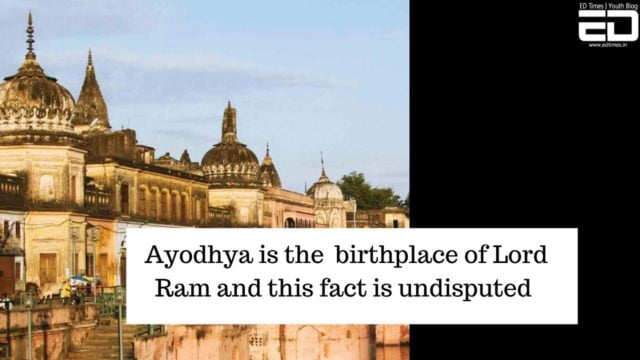
Court affirmed the belief of Hindus by saying that Ayodhya being the birthplace of Lord Ram is an undisputed fact in the eyes of law.
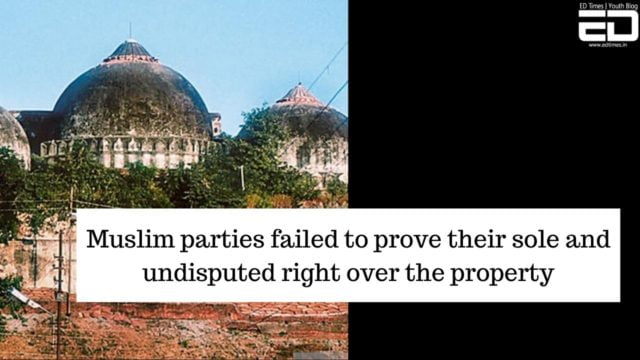
The court, while moving towards the final judgment observed that the Muslim parties have failed to prove their sole ownership over the land.
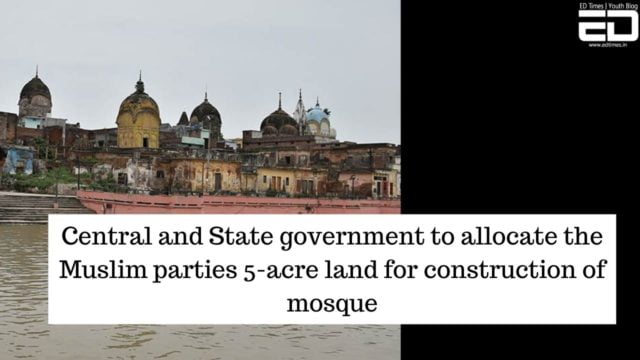
This was the turning point where the Court directed the Central and the State government to allocate 5-acre land for the construction of the mosque at a prominent spot as an alternative.
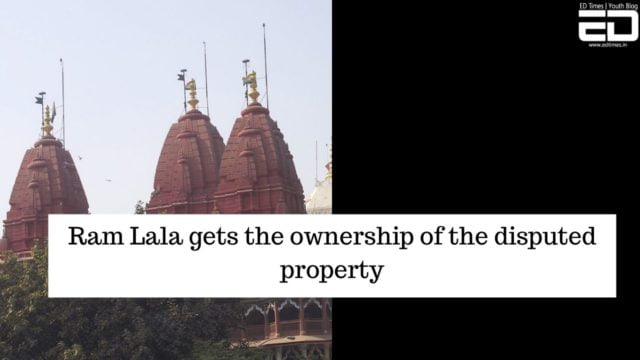
The court granted the ownership of the disputed land to Ram Lala and directed the Central government to make a trust within 3 months for the construction of Ram Mandir. The court also directed the government to hand over the custody of the earlier disputed land to the trust.
It is pertinent to note here that the verdict has been supported by the bench unanimously which rules out any scope for dissent.
According to the latest reports, the Muslim parties will explore legal avenues as they are dissatisfied by the decision.
Image Source: Google Images, Canva
Sources: NDTV, Times of India, Livemint
Find The Blogger At: @innocenltysane





























